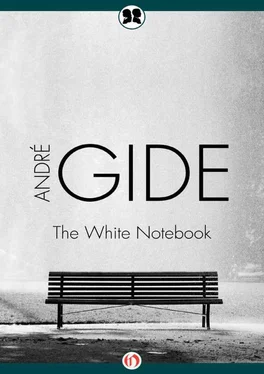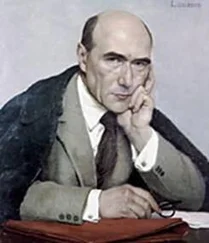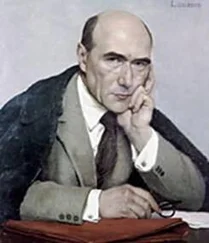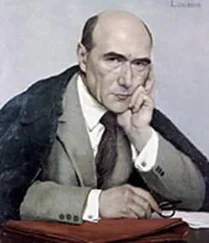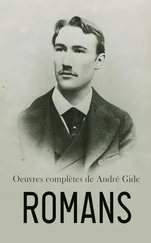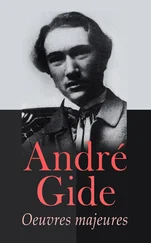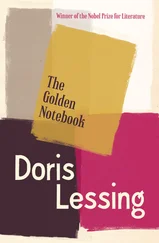But our souls — they are so alike that they can not know each other!.. 40
I wrote to Pierre:
But let them believe. What right have you to deprive them of the joys of believing? What will you give them in exchange? They are absolutely right even if they are mistaken. To believe in possession is as comforting as to possess … and are not all possessions chimerical? They are duped by a mirage of eternity and uplifted by their hope. If there is nothing after life, who will return to tell them? Nor will they be aware of not existing after death; they will never know that they have not lived on eternally. But nothing must stand in the way of their belief here and now — it is the basis for their happiness.
I remember having shown her those lines.
“O André!” she exclaimed. “If things were the way you say they are, faith would be an illusion. Only truth is worthy of belief, even though it might offer no hope. I prefer to suffer through not believing than to believe in a lie.”
Ah! Rebel!
Your serene and lofty ideas are too much for me. I am tormented by the stability of your faith; I wish it had tottered. Oh, that your soul had cried out in the void! Mine would have been less forlorn with yours for its companion, for it would have known compassion. You might now be less haughty. But you did not flinch, and now you look down on me.
Then one day we were reading Spinoza — oh, how these memories tire me! — and admiring his divine plan.
“Does this not bother you, Emmanuèle — this unorthodox book?” I asked.
“Oh, all doubts are in the mind,” you said. “A book could not create them.”
Sweet little soul! Who could know it?
Our minds were intimately acquainted and no longer withheld their secrets. We knew each other’s thoughts before speaking and we knew how they would be phrased. I made a game of it. When we were talking I would anticipate the word that was to come from your lips and take it away from you before they parted. But familiarity with the mind did not extend to the soul.… One soul pursued the other but was always deluded and led astray by the succession of thoughts that flowed in parallel fashion through our minds. The soul was enchanted by an illusory similitude, one that involved not the soul but a frivolous mind.
It was like the lover in the legend of Ondine. Pursuing her one evening, he imagined that he saw her changing image in the will-o’-the-wisp hovering over a pond. Seduced by the captivating illusion, he dashed after it only to be disillusioned. He wept when the phantom disintegrated between his fingers.
(Our souls were obscured by our thoughts. When one of them darted forth, it would skid along smooth surfaces. The slope formed by our thoughts was so inviting and the succession of our thoughts so effortless that our souls were tempted to go wherever our thoughts coincided.)
We liked to lose ourselves in distant memories. By virtue of associations that transcended time and space and unsuspected relationships, one word was enough to evoke a host of dreams. The word was never bare but it had one and the same legend for both of us; it evoked from the past many emotions, many passages that we had read — both when we had said things and when we had read them. It was never the word itself but the recall of the past. That is why we derived so much pleasure from quoting poets — not because we experienced something through them but because they reminded us of so many things!
Then one word often signified a whole sentence known only to us — it was only a bare word to others. One word was the beginning of a verse or of a thought, another marked the end. For instance, when we were walking around the house one evening, I began:
Listen! my dear …
and you understood:
Listen to the night gently descending. 41
Then it became a task, an obsession. We had always to watch for companion thoughts and to bring them to light even though we recognized them for what they were beforehand.… We no longer thought but watched each other think, and with the same result. But we were tormented by the need to test the similitude and would voice our thoughts even though we could have remained silent and communicated without words.
We anticipated sentences, snatching them from each other’s lips before they were uttered — and sometimes as we both waited for a thought from the other, the same thought would come to both of us.
On summer evenings it was with Chopin, Baudelaire.…
Leisurely dreams the moon tonight …
How would I love you, O night, without stars.…
But our tired lips left the verse incomplete and we let our eyes give more precise expression to our feelings of tenderness tinged with desire.
Some of those around us were upset by our close relationship, which we never tried to conceal. They tried to separate us, to erect barriers between us; but it was already too late, for we communicated by means of signs unnoticed by others. Instead, they quickened our interest in the mystery of sign languages, and we created our own solitude in their midst. By shackling them, they revealed to us our desires.
“Phenomena are signs that make up a language — the language of the desires that lie behind phenomena. Only desires matter, and they must be understood.
“To understand is nothing, but to be understood — that is the problem and the source of anguish. The soul throbs and would have the other know — but can not and feels isolated. Then come gestures, words, awkward explanations and material symbols for imponderable outbursts of feeling — and the soul despairs.
“Nor is that anything. The worst suffering is that of two souls unable to approach each other. Thou hast built a wall around me to prevent my going out (Jeremiah).
“They hug the wall that keeps their courses parallel, and they collide and bruise each other.”
“Neither words nor gestures give shape to thought — they proceed from the frivolous mind. But the inflection of an excited voice, the lines on the face, especially the look — these are the eloquence of the soul. Through them the soul finds expression. They must be studied, dominated, made into docile interpreters.
“I study them in front of a looking glass. They would have laughed if they had seen me looking into my own eyes and, by night, becoming almost hypnotized by the changes undergone by dark pupils as I searched for the outward manifestation of emotions through sparkling or sorrowful looks, for the alignment or narrowing of the eyebrows and the wrinkles on the brow that should accompany words of passion, of elation, of sorrow.…
“Comedian? Perhaps.… But I play myself, and the roles best played are those best understood.” 42
“Then it becomes painful never to lose sight of myself while searching anxiously for the word, the gesture, especially the look arid the inflection of the voice which will best reveal the secret emotions of my soul.
“Often preoccupation over appearing to be excited supplants the genuine emotion. Many times I have been with you, Emmanuèle, and felt the true, spontaneous emotion vanish under the attempt to force it to the surface.
“Suffering consists in being unable to reveal oneself and, when one happens to succeed in doing so, in having nothing more to say.”
To understand each other is nothing. What matters is a mating of our souls.
“I need to caress someone. My repressed caresses have not been restricted to one person but lavished on everyone. My caress is an embrace; I tend instinctively to embrace others.”
The sad part, and the part that has caused me to suffer acutely, is that the soul can reveal its tenderness only through caresses which are signs of unchaste desires. The soul is mistaken, deluded.… And then in me the gesture awakened the thought.…
Читать дальше
